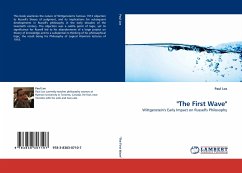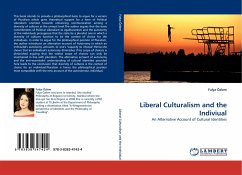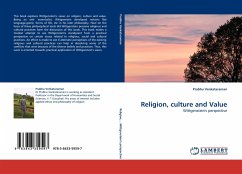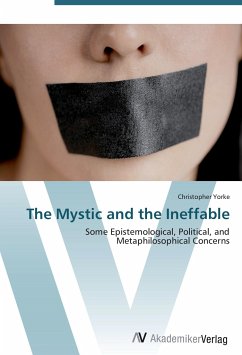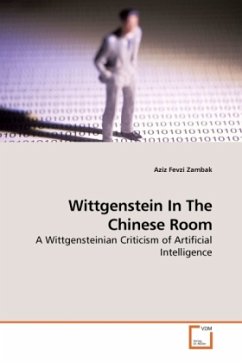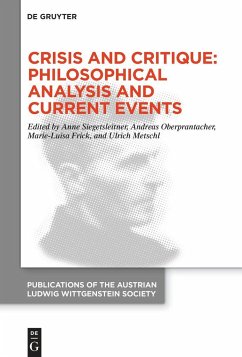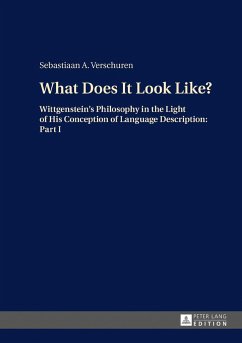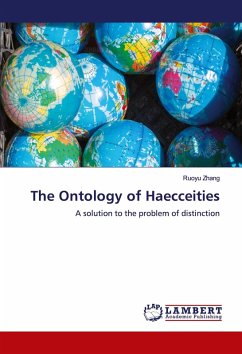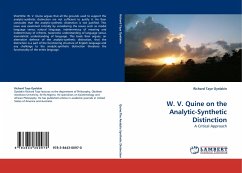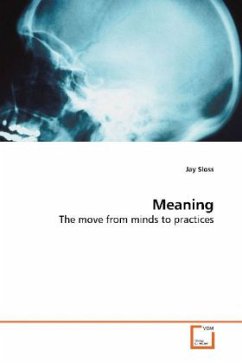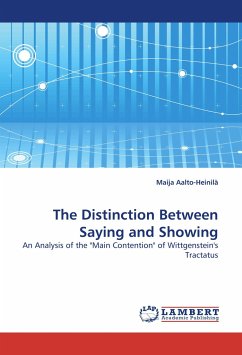
The Distinction Between Saying and Showing
An Analysis of the "Main Contention" of Wittgenstein''s Tractatus
Versandkostenfrei!
Versandfertig in 6-10 Tagen
52,99 €
inkl. MwSt.

PAYBACK Punkte
26 °P sammeln!
In one of his letters to Russell, Ludwig Wittgenstein calls the distinction between what can be said and what can only be shown the "main contention" of his Tractatus Logico-Philosophicus (1921). This book is an attempt to clarify that distinction. The writer discusses e.g. the origins of the idea of showing, its relation to Wittgenstein's views on the nature of logic, language and philosophical method, and the inadequacies of previous treatments of showing. The say/show distinction is ascribed a central role within the framework of the Tractatus by connecting it with Wittgenstein's conception...
In one of his letters to Russell, Ludwig Wittgenstein calls the distinction between what can be said and what can only be shown the "main contention" of his Tractatus Logico-Philosophicus (1921). This book is an attempt to clarify that distinction. The writer discusses e.g. the origins of the idea of showing, its relation to Wittgenstein's views on the nature of logic, language and philosophical method, and the inadequacies of previous treatments of showing. The say/show distinction is ascribed a central role within the framework of the Tractatus by connecting it with Wittgenstein's conception of logic. According to Wittgenstein, the main source of philosophical confusions is that the logic of our language is misunderstood. The confusions can be removed by grasping that logic is nothing 'substantial' - that it does not represent any objects or facts (like Russell and Frege thought). Logic is an inherent aspect of all our thinking and it SHOWS itself whenever language is used to describe the world.



